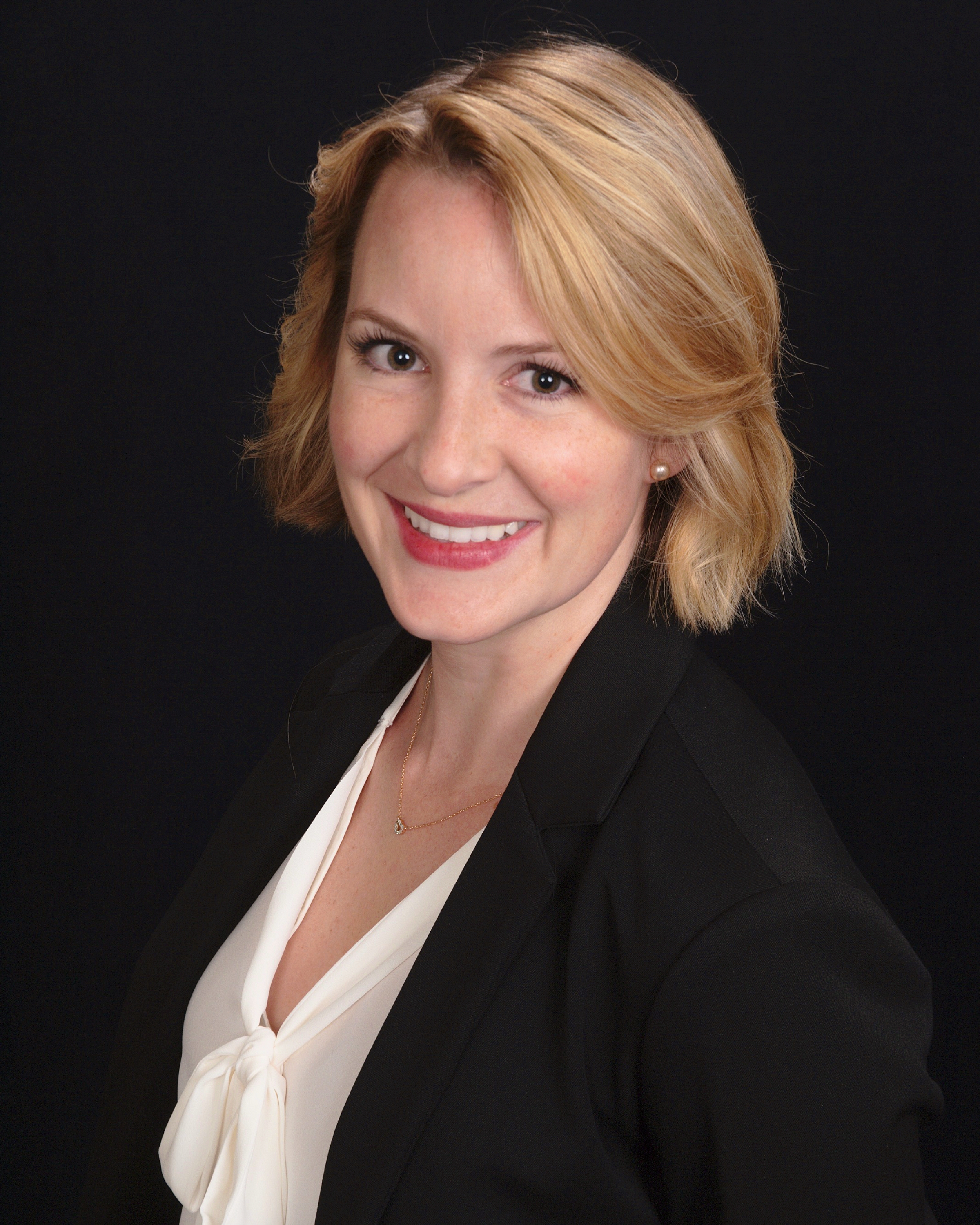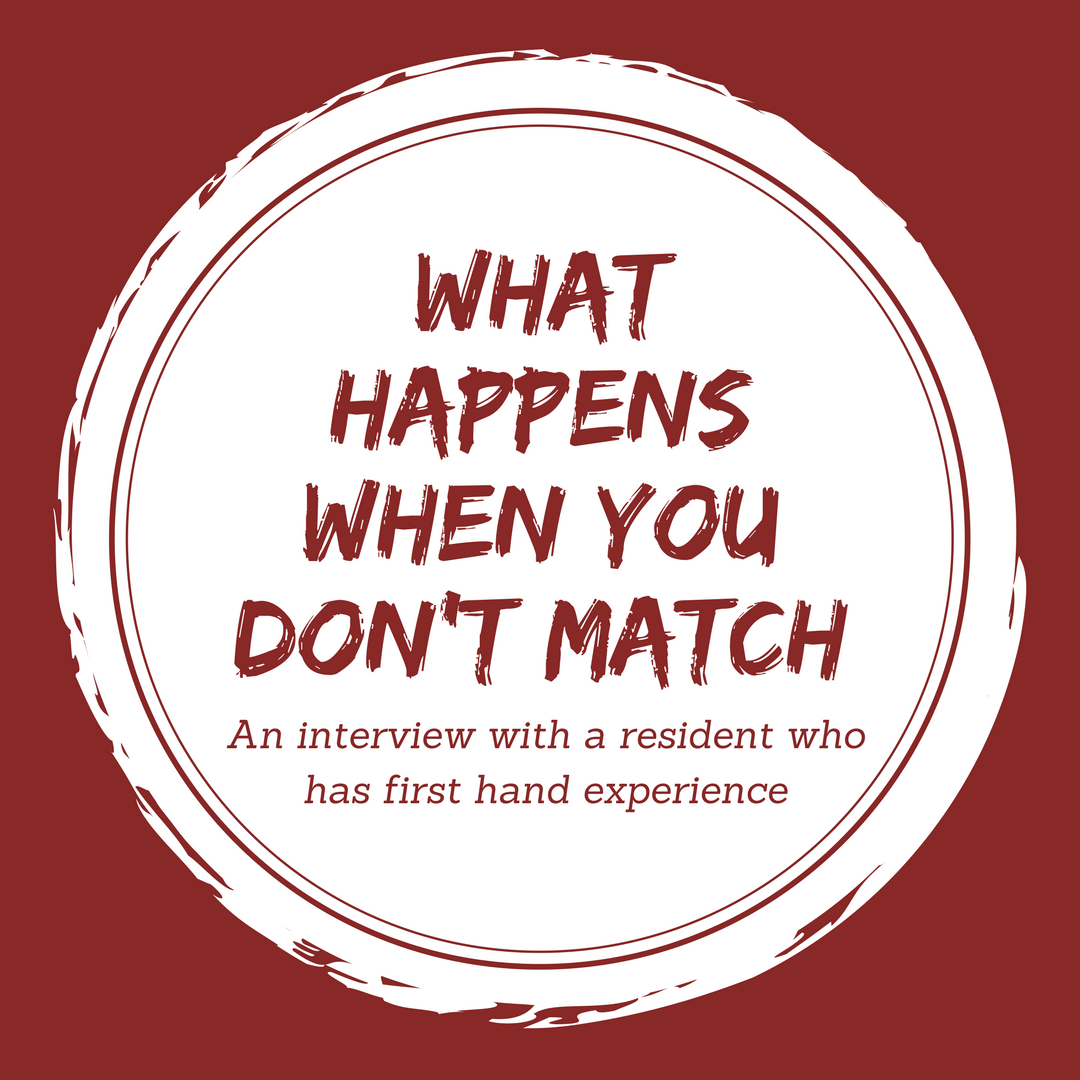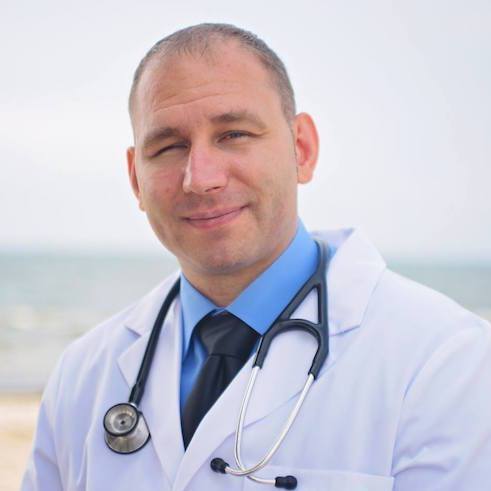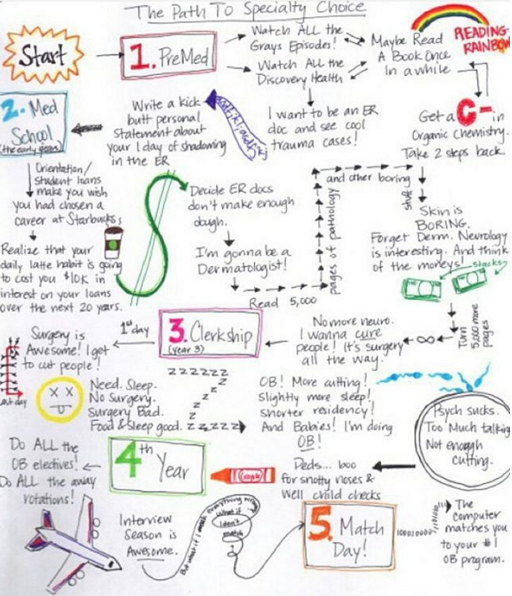Today I had the good fortune to interview a close friend who matched into one of the toughest specialties in the medical field. Not only did she match into general surgery but she also earned a categorical position. Here’s her advice on how she did it.
Tell us a little bit about yourself. Who are you professionally? Who are you outside of the hospital?
I go by Laura Edwards, or just Laura. I am a native South Floridian but I was raised by a strong mid-western mother. I come from an extremely diverse place, which was paired with values that cherish a nonjudgmental attitude and service for others.
I carry those values with me into practice. I use these with patients and colleagues just the same. I am a team player, whatever that means today or tomorrow. I feel comfortable to take the lead or to coordinate behind the scenes.
Outside of the hospital, I am a laid back lady. I binge-watch amazing TV shows, I meet friends for a brewsky, I read fiction, and I have dog. And yes, I study too.
What specialties did you apply to? How did you come to choose it/them?
I applied to general surgery positions (categorical and preliminary) only. Not applying for other specialties was a serious decision that was made with much thought and care. Many people encouraged me to have a back-up plan. I had to ask myself all the ‘What if’s?’; “what if I get a preliminary spot the first year, and then AGAIN the second year?’, “How will I significantly improve my application before the next cycle?”, “What will I do if I don’t become a surgeon?”, “How will I cope with that?” etc. I calculated the risks as best I could. Yet, in the end I listened to my gut, which told me that I was going to be a surgeon.
For those who don’t know, what is the difference between a categorical and a preliminary surgical residency?
In the world of general surgery, a preliminary position is a 1-year contract whereas a categorical position is a 5-year contract (or the amount of years required to finish the program). A preliminary position is for a Post Graduate Year (PGY) -1, -2 or even -3 resident. Going into a preliminary position will require the resident to apply for another position the following year, which means entering ERAS again, i.e. residency starts in July and you start your new application in September, only 2 months later. And as many of us know, the more times one enters ERAS the poorer the outcomes can become with each cycle.
When preliminary positions are offered to general surgery candidates it likely means there is something about your application isn’t absolutely perfect. This can be a variety of things: your medical school, your evaluations, your grades or scores, something said on your interview day, etc. It is my understanding that preliminary positions are usually given as a trial year. The program is confident enough to train you for one year but not enough to commit to 5 years.
Therefore, categorical positions i.e. full-contract positions are the goal. When a categorical position is offered, the program director is saying “We see you as a real potential surgeon. We believe with our training and your foundation you could complete our residency program successfully.”
How many programs did you end up applying to?
I applied to approximately 230 categorical positions and 150 preliminary positions. As a international medical graduate, I was very unsure of how my application would fare. Fortunately, my family supported my efforts during this time. We all believed the more applications sent the more opportunities I would find. Every penny is worth it.
How many interviews did you go on for each?
I went on 6-7 categorical interviews and 5 preliminary interviews.
Any crazy stories from the interview trail?
No crazy stories really. But always be friendly with the other applicants; they might become your co-resident or you will see them again at another interview.
What did you find to be the most frustrating part of the interview process?
There were two things that left me frustrated again and again. The first was waiting.
Waiting for interview invitation emails to come in is the most gut-wrenching part. I found myself going through highs of triumph and hope and lows of defeat and fear. It is an extremely unpredictable and emotionally taxing time. I highly suggest taking up some activity that will strongly distract your mind.
Once on the interviews, the second thing I found most frustrating was that many interviewers were unaware of how the Caribbean schools are structured. I found that my interviewers assumed that I completed all my rotations on the island. I found myself explaining the general flow of my medical education. Once I was able to explain that I had done 2 years of clinical rotations at various hospitals in the US, they were much more open to me as a candidate.
I guess, you would think that all interviewers at least glance through your transcript or would see that your letters were from American institutions, but unfortunately this was not always my experience. My advice concerning this is just to assume your interviewer has no idea where you completed the 3rd and 4th years. Use this as an opportunity to talk up your experience.
Do you feel that coming from a Caribbean medical school hindered your chances to match in one of the most competitive residency specialties?
Yes, without a doubt. The US applicants I interviewed alongside were overall more relaxed with the whole process. They spoke of turning down interviews and gave off the vibe of “It will all be okay; I’ll end up somewhere [as a categorical surgical resident].”
But let’s step back a bit.
I decided to go for surgery very early on in medical school. Therefore, everything I did was geared towards this goal. I joined the surgery interest group, attended knot-tying sessions and studied as hard as I could without going crazy for Step 1. I spent my entire third year lining up sub-internships (aka audition rotations) at hospitals outside of my medical school’s network. I pursued research within the surgical department from the 2nd week of my third year. I nurtured and maintained a MEANINGFUL relationship with my research mentor (and still do to this day). Everyday I woke up; I made sure I did something to become closer to my goal. I thought about it multiple times a day. I made a phone call to a surgery department while walking in between patients, sent a quick email to a coordinator. My efforts were relentless.
I’m sure some US graduates work this hard to attain their goal but I did not get the feeling from fellow applicants that they had the same level of intensity. I truly believe that my edge/aggressive attitude was what got me to where I am today.
In my mind, there is only one chance to gain that cherished categorical surgery spot, so hold nothing back and have no regrets.
What do you think were your greatest strengths about your application? What set you apart from the other applicants?
My step scores got my application through the filters. Then, my letters of recommendation only confirmed what others saw in me. And lastly, probably what set me apart was the friendly and confident-yet-humble manor I held during interviews.
I also have a MA degree in Marriage and Family Therapy. This was the unique twist I had in my application. This gave my application depth and made my reasons for applying to surgery even more sincere and pragmatic. In reality, I use counseling skills in every relationship I have and more importantly at work and with my patients.
For my program in particular, what set me apart in their eyes was my work and patient care they saw during my sub-internship. I went out of my way to make sure the program director knew my name. I always asked my attendings how I could be better. I made sure my chiefs knew I was reading and following up on previous concepts I was unsure of. I was so intent on being impressive that it actually worked and they vouched for me following my interview.
In contrast, what were your greatest weaknesses about your application?
Of course, the fact that I was an international graduate and had average step scores were things that I had to compensate for, but at the same time, these are things you cannot change.
The one weakness I could have prevented was a particularly bad evaluation from a particularly important person. The clerkship director for my 3rd year surgery rotation knew my interest in surgery and therefore held me to those standards. Instead of striving for excellence, I became overwhelmed and eventually gave up on trying to impress her. That led to poor decisions that only worsened the situation. I knew her evaluation of me would not be stellar but I did not think she would be so damming either.
The lesson to learn from this is to never let anyone get so down on you that you start to believe them. You are your best advocate and champion. Never let that go.
How did you do on the USMLE’s?
I studied hard for Step 1 and received a 233.
I took a risk and scheduled my first sub-internship during the month I was also studying for Step 2 CK. I ended up splitting my time 90% rotation and 10% on CK. So inevitably, I got a 233, the same score as Step 1. This was devastating because all institutions look for an increase in score. A stagnant or decrease in score is can be seen as a red flag. Interviewers asked about my CK score on two occasions. Once I explained that I was also doing my first sub-internship rotation they all understood and did not ask any further questions.
However, the risk I took was worth it because that first sub-internship is where I matched that following March. Hennepin County Medical Center saw me as a person, as a blooming surgeon and not as a number. I hope you all find this too when searching for your residency spot.
What advice would you give to other international medical graduates who want to pursue a categorical residency position?
First of all, thank you Marc for interviewing me. The process of getting this all down on paper has been a good exercise. It has helped me to realize new foundational truths that will help others and me along the way. My main pieces of advice for those pursuing a categorical surgical position are as follows:
- Be your own champion, always
- Be relentless in your efforts to stand out
- Do away rotations at non-affiliated hospitals
- If you don’t have the scores (~230 or above), be realistic about your chances
Thank you Laura for taking the time to let me interview you. Your tenacity is inspiring.
Be sure to subscribe below and like me on Facebook so you don’t miss you next week’s interview!





